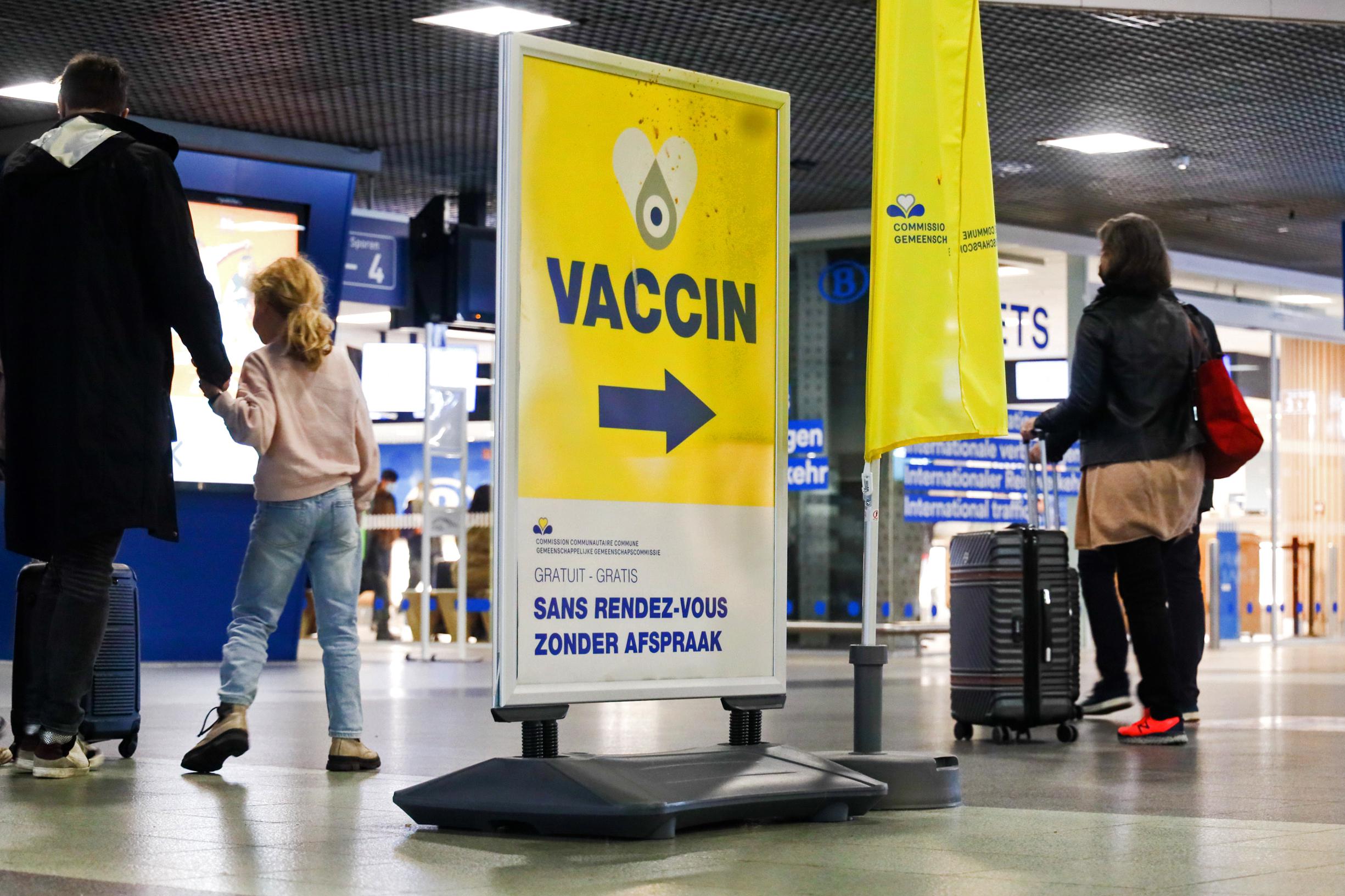Fully vaccinated people are eight times less likely to die from Covid. This is according to new research by Sciensano. However, the protection against infection is greatly reduced. For example, people over 65 have only 13 percent less chance of being infected than unvaccinated people.
–
The Crisis Center’s press conference was a plea for the booster shot and the vaccines, but also for adherence to the corona rules. Virologist Steven Van Gucht proposed a new study by Sciensano. It shows that vaccinated people are eight times less likely to die from Covid-19. Depending on the age, there are still variations on this: people under 65 are almost 100 percent protected, for people over 85 there is 86 percent protection. Van Gucht nuances that these figures are only derived from the period from 18 to 31 October.
The protection against hospital admissions is also good. ‘For example, about 30,000 hospital admissions were avoided by the vaccine,’ says Van Gucht. This covers the period from the beginning of the pandemic to mid-October. Vaccinees in the 18-64 age group have an 88 percent lower risk of hospitalization. The chance that they will end up in intensive care is 93 percent lower than in the unvaccinated. People over 65 are 63 percent less likely to be hospitalized and 75 percent less likely to end up in intensive care than unvaccinated people.
Highest number of infections ever
Fortunately, says Van Gucht. The numbers are already bad, but the situation in hospitals, among others, would have been much more dramatic if the vaccination rate hadn’t been so high. Because the numbers keep rising. Van Gucht: ‘At the moment there is no prospect of a peak. The next few weeks will be ‘critical to keep the peak as low as possible’.
On average, almost 17,000 infections were diagnosed per day. That is an increase of 48 percent. But the week compared is an atypical week due to a holiday on November 11. ‘If we take that out of the equation, there would be an actual increase of about 33 percent’, says Van Gucht. And those numbers remain high: last Monday, more than 25,000 new infections were detected in one day. That is the highest number ever since the start of the pandemic.
In Flanders in particular, the infection figures are rising, with East Flanders leading the way: 61 percent more infections were detected there on a daily basis than last week. East and West Flanders also lead the way in terms of hospital admissions: more than a third of all hospital admissions occur in East and West Flanders.
Across the country, there are just over 300 new admissions a day. That is an increase of 22 percent on a weekly basis. There are currently 3,462 covid patients in Belgian hospitals. There are 669 corona patients in intensive care, which is an increase of 21 and 16 percent respectively, compared to last week. The increase in intensive care seems somewhat less exponential, but it is ‘too early to draw conclusions’. “We expect a peak of more than 750 corona patients in ICU next week,” says Van Gucht.
The number of deaths, on the other hand, is increasing more in Wallonia than in Flanders.
People over 65 are only 13 percent less likely to be infected
The vaccines therefore ensure that our hospitals are not already overrun, despite a record number of new infections, as Prime Minister Alexander De Croo said earlier during the press conference of the Consultation Committee, where the new measures to contain the pandemic. dikes were proposed.
But protection against infection with the virus does decrease sharply, according to Sciensano’s study: in the last half of October, vaccinated people between the ages of 18 and 64 had a 52 percent lower chance of being infected than non-vaccinated. But for people over 65, protection against infection decreased even more during the same period. They are only 13 percent less likely to be infected than non-vaccinated people. According to Van Gucht, there are various reasons: ‘The protection has been declining since July, moreover, that age group was vaccinated first, so it is logical that the protection decreases. In addition, there was more virus circulation, and the delta variant is more contagious than the original variant’. Van Gucht repeats that a booster shot is recommended, but also that we should not rely solely on it: ‘The vaccine created a sense of safety, we dropped a lot of measures at once, such as a mouth mask requirement. We have to fight the virus with more than just the vaccine.’
– .


